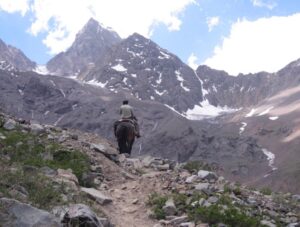Jan 2025 Info Sheet
Jan 2025 PPT
 Chile has been in the forefront of major new issues related to health systems and inequality. First, most Chilean observers were surprised by the massive social protests in October 2019 that challenged the view that Chile was progressing in reducing poverty and increasing equal access to health care for the poor and vulnerable populations. The protests led to a process to revise the Chilean constitution and a presidential election, which led to the election of Gabriel Boric, a young a young progressive, and two attempts to approve a new constitution, both of which failed in plebiscites. In parallel, three Supreme Court rulings forced the Government to propose to the Congress urgent legal adjustments to the private insurance regulation, while making new efforts to design and approve a broader health sector reform.
Chile has been in the forefront of major new issues related to health systems and inequality. First, most Chilean observers were surprised by the massive social protests in October 2019 that challenged the view that Chile was progressing in reducing poverty and increasing equal access to health care for the poor and vulnerable populations. The protests led to a process to revise the Chilean constitution and a presidential election, which led to the election of Gabriel Boric, a young a young progressive, and two attempts to approve a new constitution, both of which failed in plebiscites. In parallel, three Supreme Court rulings forced the Government to propose to the Congress urgent legal adjustments to the private insurance regulation, while making new efforts to design and approve a broader health sector reform.
Secondly, in the face of the COVID 19 pandemic, Chile has gone through periods when it seemed to have applied the best practices for containing Covid-19 and for high vaccination rates but these periods were followed by increasing cases and hospitalizations. Currently Chile is again one of the best examples of COVID policies in the region.
Thirdly, Chile has been an innovator of health sector reforms and has been a model for several countries around the world. We will have interviews with many participants in the health system, including current and past Ministers of Health, legislators, members of professional associations, health providers in the public and private sectors, academic observers and researchers to get their views on the protests, Covid 19 situation and the broader options for health reform. We will also observe Chile’s initiatives in primary care including an important public private partnership and the development of a family medicine approach to community health care.
During the the course, we will interview key actors in the health system and arrange visits to clinics and hospitals to learn about:
- the origins of the protest movements and their continuing effects
- the current political issues of the Constitution and the Boric administration
- the course of the Covid-19 pandemic, its reflection of on-going inequalities, and the different strategies to control the pandemic
- their innovative health insurance system which involves both public and private insurance
- their experiment in public private partnerships for delivery of primary care (the Ancora Clinics, written up as a Harvard Business School teaching case)
- the challenges of implementing a family medicine approach in primary care clinics
- how municipal governments manage the decentralized primary care systems in urban and rural settings.
- the challenges of both public and private hospitals in Santiago
- legislative initiatives on health form in the Congress in Valparaiso
During the three weeks, students will have a chance to do independent or collaborative research or a practicum on topics of their own interest. During the fall, instructors can put students in touch with local academics and observers who can help develop the independent projects. Chilean residents in family medicine who attend the course and be available to work with the Harvard students on their projects. The course offers a special opportunity for MPH students to do a practicum on specific issues on Chile before, during and after the winter term course.
The three-week, 2.5 credit course involves:
- Introductory lectures by Harvard Chan School faculty to orient students to the key issues of health reform and community medicine in Chile and to assist in the selection of MPH practicum topics
- lectures by key participants in the health system – past and present
- Interviews with current and past stakeholders and observers of the health system innovations
- Lectures and field visits to public and private clinics and hospitals in urban and rural settings, including the Ancora public private partnership clinics
- Individual or collaborative short research projects on various topics such as pandemic policies and impacts, health reform, community medicine, innovations in obesity, tobacco control, DRGs and other public health topics
Course limited to 15 students. Spanish is not a requirement since most presentations will be in English or informal translations available by Spanish speaking students and Chilean residents.